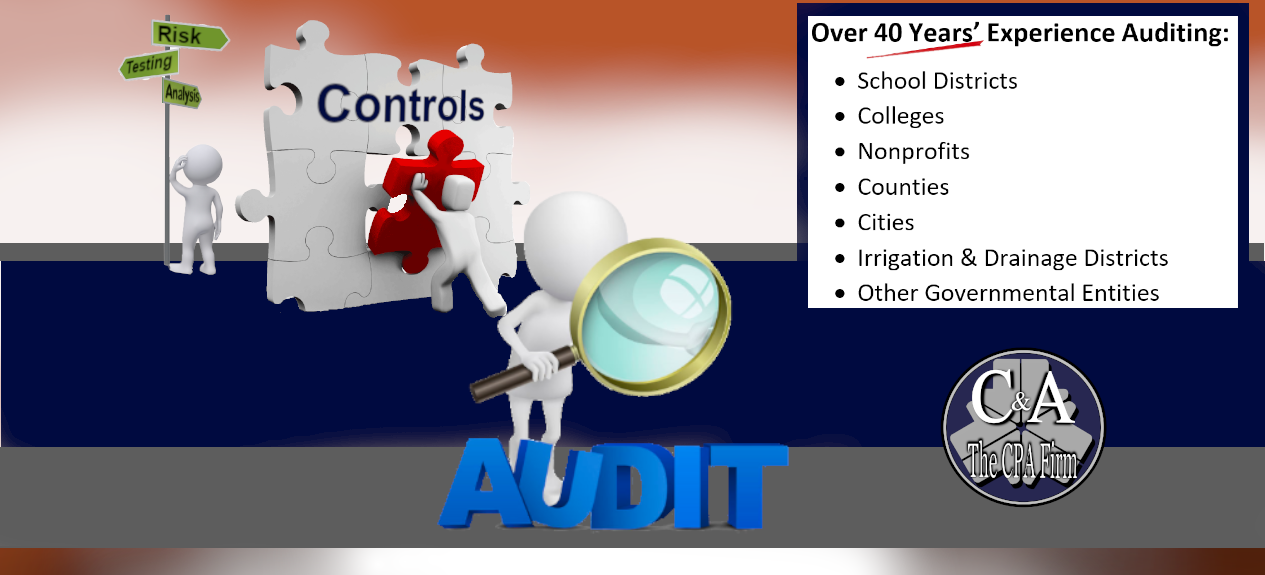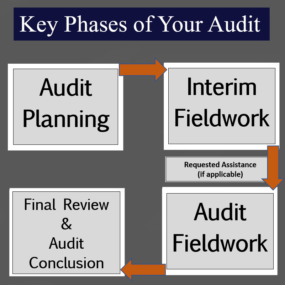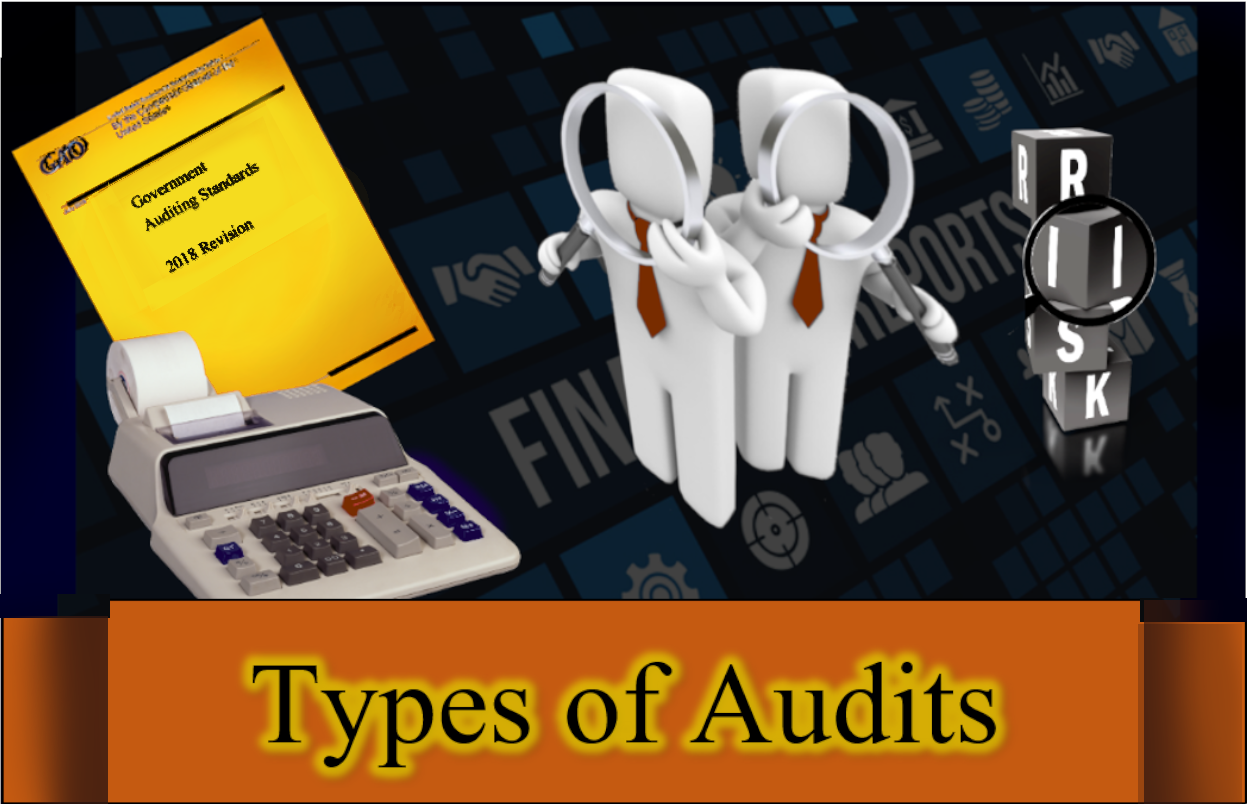

What is an Audit?
What Auditors Generally Don't Do:
An audit is the examination of the financial records of an organization whether public, private, or governmental entity. The financial report includes, but is not limited to balance sheet, an income statement, a statement of changes in equity, a cash flow statement, and notes comprising a summary of significant accounting policies and other informational notes. The purpose of an audit is to form an opinion on whether the financial information presented is fairly stated and free of material misstatement. When examining the financial report, auditors must follow auditing standards which are set by the American Institute of Certified Public Accountants (AICPA). Once auditors have completed their work, they write an audit report, explaining what they have done and giving an opinion drawn from their work.
![]()
How is an Audit Conducted?
The entity’s management is ultimately responsible for the financial statements. The financial statements must be prepared in accordance with legal requirements and financial reporting standards and, once compiled in a report with an auditor’s commentary, assessment, opinions and recommendations, an entity’s governing board approves the financial report.
Auditors start their examination by gaining an understanding of the organization’s activities.
For each major activity listed in the financial report, auditors perform a risk assessment which could have a significant impact on the financial position or financial performance, and also some of the measures (called internal controls) that the entity has put in place to mitigate those risks.
Based on the risks and controls identified, auditors consider what management has done to ensure the financial report is accurate, and examine supporting evidence.
Auditors then make a judgement as to whether the financial report taken as a whole presents a true and fair view of the financial results and position of the entity and its cash flows, and is in compliance with applicable financial reporting standards.
Finally, auditors prepare an audit report outlining their opinion for the entity’s governing board and, in many cases, third parties.
- comment on the adequacy of financial staff or the entity’s employees,
- check every transaction that contributes to the financial report but rather randomly select for transactions for testing,
- look at every transaction carried out by the entity,
- comment to management on the quality of the board of directors, board members, members of a governing body, or governance.

What Auditors Can't Do:
Auditors can not predict the future. The audit relates to a specific past accounting period. It does not determine what may happen in the future, and so cannot provide assurance that the organization will continue in business indefinitely.
Auditors also can not spend 100% of the time at the entity’s location. The audit is carried out during a defined time frame. The prime purpose of the audit is to form an opinion on the information in the financial report taken as a whole, and not to identify all possible irregularities. This means that although auditors are on the look-out for signs of potential material fraud, misrepresentations, or inefficiencies, it is not possible to be certain that they will or can be identified.



